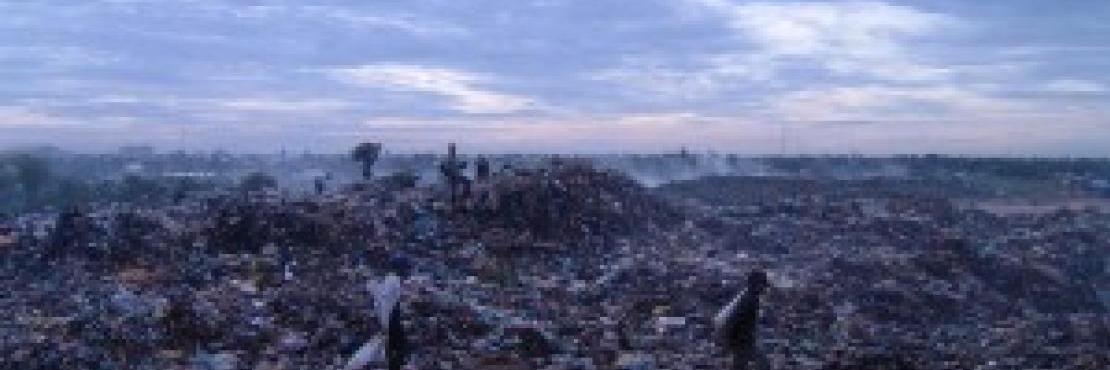A “waste geek” emerges
For many, waste is something to avoid. Going against convention, Heather Marshall, IDS Co-op program class of 2006, has decided to use her career to confront the world’s waste head on. A self-identified “waste geek,” Marshall’s passion is the point where the environment intersects with human rights.
From the start of her studies in the IDS Co-op program, environmental science classes resonated with Marshall. “I remember the first project in the first enviro sci class we worked on; a project about the footprint of raising cattle versus grain,” says Marshall. “We talked about the environmental aspect, but also about distribution issues and trade. It woke up so many ideas in me. I became a vegetarian that semester and still am.”
Marshall began working in the soil lab at UTSC after taking a course in soil erosion. She loved the experience, but realized that rather than spending time studying soil samples, she wanted to engage with people over the environmental issues she felt passionate about. She realized that environmental issues were often inherently political, and set out to get the skills that would allow her to get involved at this level. Her first step in this direction was becoming the only IDS Co-op program representative on UTSC’s Student Union.
Marshall’s IDS co-op placement took her to Phnom Penh, Cambodia where she coordinated a waste management research project. The study investigated the informal economy of waste pickers, waste reduction, health and safety, smart resource use, and human rights. Marshall’s role was keeping the project moving, planning conferences, organizing educational programs, and writing reports.
Marshall visits a rural commune near Stung Treng during her placement in Cambodia (2004). She travelled with a group of students from the university where she was working to take the testimonies of commune villagers whose livelihoods were threatened by illegal logging. Local activists monitored the altercations between loggers and villagers as well as bringing them supplies. Marshall's position as a foreigner helped to provide security during their testimonies.
“The more I got involved with waste issues, the more I started learning about slum living – waste, water, infrastructure. I decided to do my thesis about informal settlements and infrastructure, says Marshall. “Basically, the more infrastructure people have, the more protected they are from eviction, so access to resources is very political.” Working with tenants and communities to monitor and respond to waste issues has been on Marshall’s to do list ever since.
Going local
Back in Toronto, Marshall found a job with the Toronto Environmental Alliance (TEA) where she works today. Her first role was as an energy conservation program coordinator. She trained tenants in a Toronto Community Housing Program building to conduct energy audits and become door-to-door energy conservation educators. Marshall then became TEA’s Waste Campaigner, which had her monitoring provincial and municipal waste policy and educating Torontonians about the issues. Now, she is TEA’s Toxics Campaigner and Good Neighbour Coordinator, where her main focus is on industrial pollution. “I work on pollution prevention from the policy level all the way down to grassroots organizing. I work in local communities to encourage companies to willingly make changes to reduce pollution and be a ‘good neighbour’,” says Marshall.
Though she now works locally, rather than globally, Marshall feels the issues she deals with at work aren’t that different from the ones she was involved with on placement. “We have to look at how the decisions we make in Toronto have an international impact. And how international policy affects Toronto as well,” says Marshall.
A critical impact
The friendships she made at UTSC have also lasted beyond the length of the program – each year Marshall’s IDS cohort gets together for a visit no matter where each of them are in the world. As well as the social impact of the program, Marshall still uses the critical perspective, research skills and intercultural training she received in the IDS Co-op program on a daily basis.
She sees the value of bringing the worldview fostered in the IDS Co-op program – one that looks at both power and privilege at every step – into a wide range of situations. “The best thing would be for IDS students to infiltrate every sector and to bring that critical perspective with them,” she says.
Profile written by Kate Jongbloed (Class of 2008)
